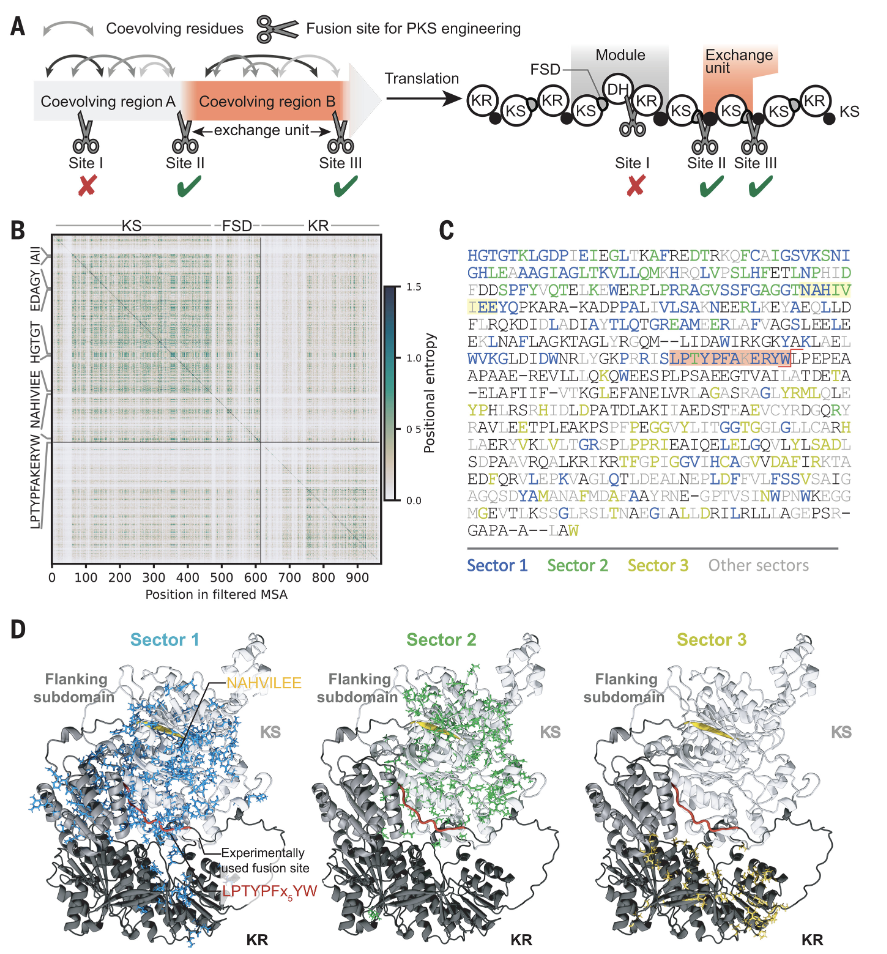Evolution-guided engineering of trans-acyltransferase polyketide synthases
The publication in Science by the Piel group (IMB) in collaboration with the Piechulla (University of Rostock) and Walker group (Vanderbilt University) reports a method that permits the construction of tailored bacterial biosynthetic pathways for structurally complex polyketide metabolites, based on ways how modular megaenzymes evolve naturally.

Bacterial multimodular polyketide synthases (PKSs) are giant enzymes that generate a wide range of therapeutically important but synthetically challenging natural products. Diversification of polyketide structures can be achieved by engineering these enzymes. However, notwithstanding successes made with textbook cis-acyltransferase (cis-AT) PKSs, tailoring such large assembly lines remains challenging. Unlike textbook PKSs, trans-AT PKSs feature an extraordinary diversity of PKS modules and commonly evolve to form hybrid PKSs. In this study, Piel and coworkers analyzed amino acid coevolution to identify a common module site that yields functional PKSs. They used this site to insert and delete diverse PKS parts and create 22 engineered trans-AT PKSs from various pathways and in two bacterial producers. The high success rates of this engineering approach highlight the broader applicability to generate complex designer polyketides.
Link to the paper in external page "Science".